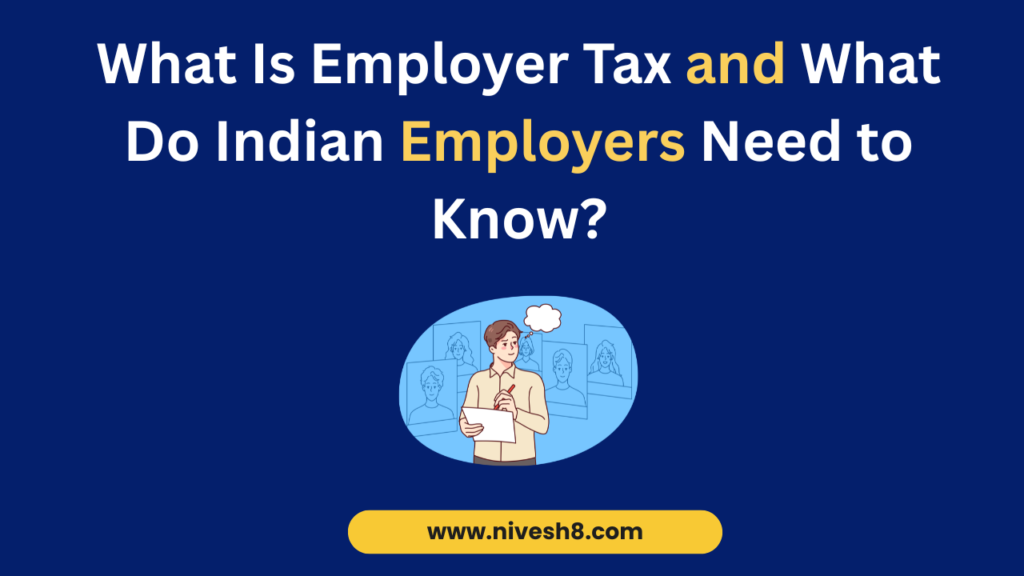Most people, when we discuss taxes, consider what workers pay. Did you also know, though, that companies have tax obligations? Employer tax in India entails a number of responsibilities, including TDS deduction, EPF and ESI contribution, and employee tax return filing. Let us clarify what employer tax actually means and how it influences companies of all kinds.
Describes Employer Tax
Employer tax is all the tax-related obligations an employer has to manage on behalf of staff members and the company. It covers:
- TDS (Tax Deducted at Source) deduction and depositing on salaries
- Helping with Employee State Insurance (ESI) and Provident Fund (EPF)
- Paying Professional Taxes: Some states
- Returning often to EPFO/ESIC and the Income Tax Department
These are taxes and obligations managed by employers, not taxes paid on them.
India’s Various Employer Tax Responsibilities
1. TDS on Salary (Partition 192)
- Employers have to take TDS out of staff pay.
- Based on employee declarations (such as investments under 80C, 80D) and income tax slab.
- TDS has to be entered by the seventh of the following month.
- Employees get Form 16 at year-end.
2. EPF (Employee Provident Fund)
- The company pays twelve percent of the basic salary.
- Additionally, a matching amount is deducted from the staff salary.
- Monthly EPF returns have to be entered on the EPFO portal.
3. ESI (Employee State Insurance)
- Relevant if pay falls less than ₹21,000/month.
- Employer pays 3.25%; staff member pays 0.75%.
- Contributions go to ESIC, which offers medical benefits.
4. Professional Taxes Paid by Certain State Governments (West Bengal, Maharashtra, Karnataka)
- Companies take it out of payroll and forward it to the state.
- State policies affect rates and guidelines.
Other Employer Tax Dues
- Form 24Q: Salary TDS quarterly TDS return
- Form 16: Employee yearly tax certificate
- Income tax audit (should the company apply one)
- Gratuity and bonus payments per law
Why Do We Need Compliance?
- Steer clear of fines and legal action.
- Keep neat business records.
- Establish credibility among staff members.
- Needed for tenders, bank loans, investor checks.
- Late payment penalties and interest can follow from non-compliance.
- Notes originating from the Income Tax Department.
- Business registration cancellation under extreme circumstances.
Tools to Support Companies
- Payroll systems including RazorpayX Payroll, Keka, Zoho Payroll.
- CA or tax advisor for return filing.
- Government sites including TRACES (for TDS), EPFO, and ESIC portals.
Thought at Last
Employer tax is a duty, not only a chore. Whether you run a big business or a small startup, keeping on top of tax obligations guarantees seamless operations, satisfied staff, and a reputable name. Remain compliant, make appropriate use of the tools at hand, and avoid leaving it until very late.
Good companies file right and pay on schedule.



